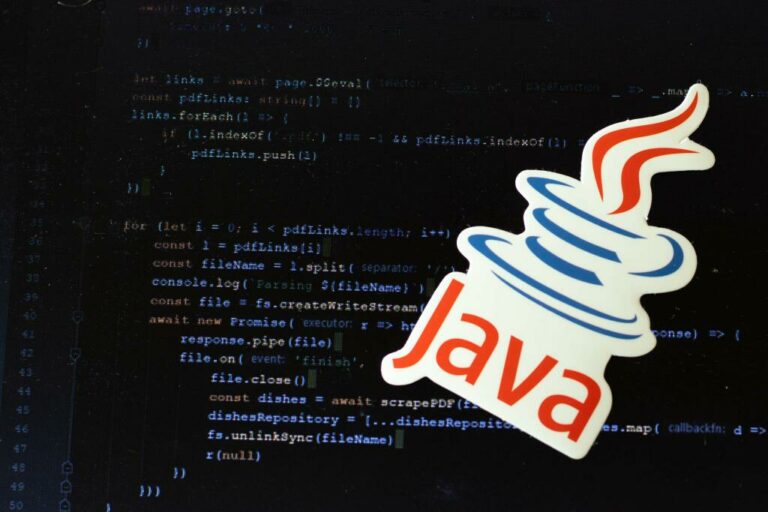The management of machinery and equipment is revolutionized by predictive maintenance, which is a cornerstone in AI implementation. Maintenance schedules have traditionally been primarily based on mounted intervals, which can result in pointless servicing, or worse, surprising breakdowns. AI has an essential function in generative design, a course of by which a design engineer enters a set of necessities for a project and then design software creates a number of iterations.
It is now characterised by the presence of the most recent trends, corresponding to AI, ML, knowledge analysis, and course of automation tools for supply chain optimization and streamlined manufacturing processes. AI also fosters a symbiotic partnership between humans and machines, which dispels fears of job displacement. AI enhances the workforce by providing upskilling alternatives and permitting employees to give attention to high-value, strategic duties. AI-driven security methods contribute to a extra protected working setting.

With machine vision, manufacturers can detect faulty supplies or components earlier than they go into manufacturing and optimize their quality control system. The forecasts may additionally be accomplished on a granular degree, helping organizations optimize for specific products and places. In addition, real-time knowledge from numerous sources allows producers to rapidly adapt and respond to adjustments in demand. By using AI algorithms, manufacturers can automatically allocate resources, schedule duties, and optimize processes primarily based on varied components similar to demand, availability, and performance metrics. This precision applies to every thing from demand forecasting to effectivity loss.
Ai-powered Digital Twin Use Cases
After that, producers realized the key to effectivity, productiveness, and profitability lay not in people but in machines. On one hand, we see the unprecedented development and scalability it offers to the business, and on the opposite – the constructive impact on the workers and their productivity and satisfaction. Read along to search out out extra about how AI will change the face of commercial Manufacturing. In this text, we’ll check out just a few of the methods manufacturing firms can benefit from implementing AI in their processes. Furthermore, we’ll share the diverse purposes of AI that will allow you to save prices and enhance processes whatever the product specifics. We’ll take a glance at simply a few of the methods manufacturing corporations can profit from implementing AI in their processes.

Moreover, these techniques can mix historic data with external components to determine the root explanation for the deviation, such as equipment malfunctions, suboptimal workflows, or supply chain issues. This improvement in technology means you could predict failures with more certainty, stopping manufacturing stops, which can price you money and clients. Artificial intelligence has the potential to rework whole industries – and manufacturing is no exception. Thanks to advances in information analytics, we now have a robust basis for adopting AI-based applied sciences, which can use that information in remarkable methods.
AI-powered software program like can predict materials costs more precisely than people and it learns from its mistakes. AI empowers producers to analyze vast volumes of knowledge like by no means before. AI algorithms mix historic sales data with external elements corresponding to climate circumstances, market trends, and financial indicators to make highly correct demand forecasts. By embedding AI capabilities into manufacturing unit machines and gear, manufacturers can benefit from automation, which allows them to optimize the overall manufacturing process. As you can see, the makes use of of artificial intelligence in manufacturing are numerous.
Suntory Pepsico Streamlines Its High Quality Management In Production
The examples vary from small and middle-sized organizations to leading manufacturers. We bear in mind the assault against the car producer Honda or the ransomware in opposition to Renault-Nissan in 2017. Due to the shift toward personalization in consumer demand, producers can leverage digital twins to design various permutations of the product.
- Once the modifications are in place, AI can provide managers with a real-time view of site visitors, enabling fast experimentation with minimal disruption.
- Today, the relentless pursuit of competitive advantage hinges on a robust technological foundation.
- With the addition of synthetic intelligence, an industrial robotic can monitor its own accuracy and efficiency, and train itself to get better.
- AI and ML technologies analyze large quantities of data from the market to foretell preferences that affect product designs.
- It’s enabling producers to carry out checks and run experiments in virtual worlds as a substitute of the true one, where they’re expensive, time-consuming, and potentially unsafe.
- Medium-sized producers with multiple places ought to pick one as their center of excellence for an AI pilot.
He led know-how technique and procurement of a telco while reporting to the CEO. He has additionally led industrial growth of deep tech company Hypatos that reached a 7 digit annual recurring revenue and a 9 digit valuation from 0 inside 2 years. Cem’s work in Hypatos was covered by main expertise publications like TechCrunch and Business Insider.
AI considerably contributes to enhancing product visibility and searchability by generating high-quality product information. This knowledge is derived from numerous sources corresponding to buyer feedback, online reviews, market tendencies, and real-time sales data. AI algorithms analyze this information to provide structured and accurate product information, facilitating efficient product searches. By augmenting knowledge analytics with machine learning, manufacturers can foresee market developments and enterprise dangers better than ever.
Advantages Of Ai In Manufacturing
Manufacturing Innovation, the blog of the Manufacturing Extension Partnership (MEP), is a useful resource for producers, industry experts and the basic public on key U.S. manufacturing matters. There are articles for these seeking to dive into new strategies emerging in manufacturing in addition to useful data on tools and opportunities for manufacturers ai in manufacturing industry. Industrial AI has led to a proliferation of simulation across production, assembly, efficiency, stock, and transportation. It’s the explanation a lot of the advantages explored in this article are potential. Until just lately, simulation was extremely difficult and required immense computing energy.
The solution you need is predicated on understanding your process and tweaking based in your priorities. People usually use the phrases AI and machine studying interchangeably, but they’re two very different things. Machine studying places information from completely different sources together and helps you understand how the info is performing, why, and which data correlates with different information. It helps you clear up a particular problem by taking historic evidence https://www.globalcloudteam.com/ in the knowledge to let you know the chances between various decisions and which choice clearly labored higher up to now. It tells you the relevance of all this, the probabilities of sure outcomes and the future chance of these outcomes. In the webinar, Rick described AI use instances that includes several producers he has labored with including Precision Global, Metromont, Rolls-Royce, JTEKT and Elkem Silicones.
Thanks to AI technology, simulation is now a hundred instances faster and extra usable–and affordable–than ever. This article looks broadly at where AI has essentially the most important impact on the manufacturing industry. Read on to seek out out why the Global Artificial Intelligence in Manufacturing Market is predicted to succeed in $9.89 billion by 2027, up from $1.82 billion in 2019. It is no surprise that manufacturing is certainly one of the greatest waste-producing industries.
Increasingly, nevertheless, AI isn’t getting used to improve gross sales rep efficiency however substitute reps altogether. With an AI algorithm integrated into your website, patrons can configure and buy even the most complex, configurable products without human interplay. Not solely does this cut back costs for the vendor, however it dramatically improves CX for most patrons who prefer self-serve over human interplay. Adopting beneficial security tips and cybersecurity frameworks is a must for all.
Artificial intelligence (AI), when built-in into manufacturing processes, has reshaped the relationship between machines and people. It fosters a collaborative environment that takes advantage of the strengths of every. AI in high quality control improves not solely the final product, but in addition operational efficiency. Manufacturers can higher allocate their resources and streamline their processes to maximize productiveness with a reduced variety of faulty merchandise.

It also permits the carrying out of a exact root-cause evaluation and manufacturing optimization. As one McKinsey report says AI can improve defect detection by 90% compared to human inspection. AI might help organizations transform and optimize each inside and exterior processes by maximizing productivity and profitability. Workflow adjustments then influence costs, manufacturing quality, delivery, and each different side of the production process. One of the most important improvements to the product lifecycle is automation. AI-powered assistants for people is likely certainly one of the most exceptional elements of collaboration between people and machines.
What Are The Benefits Of Ai In Manufacturing?
This permits customers to purchase the product primarily based on efficiency metrics rather than its design. Applications embody assembly, welding, painting, product inspection, selecting and putting, die casting, drilling, glass making, and grinding. The extreme price volatility of raw materials has always been a problem for manufacturers. Businesses need to adapt to the unstable price of uncooked materials to stay competitive in the market.

